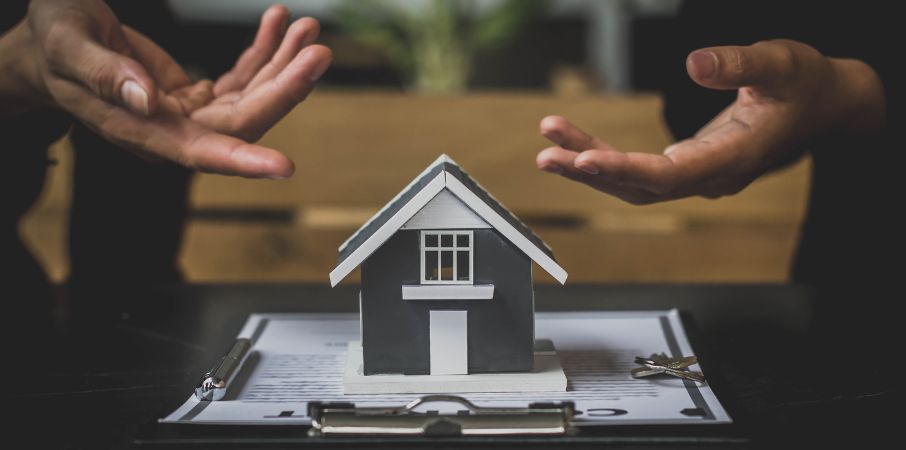Building the Future: Embracing Sustainable Practices in India's Real Estate Industry

Building the Future: Embracing Sustainable Practices in India's Real Estate Industry
In recent years, sustainability has emerged as a cornerstone of the real estate industry in India, reshaping the way properties are designed, constructed, and managed. With growing environmental concerns and a heightened focus on energy efficiency, developers, investors, and real estate agencies are increasingly turning to sustainable building practices to create healthier, more environmentally friendly spaces that meet the needs of today's discerning consumers. In this comprehensive guide, we'll explore the importance of sustainable building practices in both commercial and residential real estate sectors, highlighting key strategies and initiatives driving sustainability in India's real estate landscape.
1. Embracing Green Building Certification: Green building certification programs such as LEED (Leadership in Energy and Environmental Design) and IGBC (Indian Green Building Council) have gained prominence in India's real estate industry, serving as benchmarks for sustainable construction practices. By adhering to stringent criteria related to energy efficiency, water conservation, indoor air quality, and materials usage, developers can earn certifications that validate their commitment to sustainability and enhance the marketability of their properties in both commercial and residential real estate sectors.
2. Energy-Efficient Design and Technologies: Energy efficiency lies at the heart of sustainable building practices, with developers integrating innovative design strategies and technologies to minimize energy consumption and reduce environmental impact. In commercial real estate, features such as high-performance insulation, energy-efficient HVAC systems, and LED lighting can significantly lower operating costs and enhance the sustainability credentials of office buildings, retail centers, and industrial facilities. Similarly, in residential real estate, solar panels, energy-efficient appliances, and passive design principles can help homeowners reduce their carbon footprint and utility bills while creating comfortable living spaces.
3. Water Conservation Measures: Water scarcity is a pressing concern in many parts of India, making water conservation a critical aspect of sustainable building practices. Developers are implementing strategies such as rainwater harvesting, greywater recycling, and efficient irrigation systems to reduce water consumption and mitigate the strain on local water resources. These measures not only contribute to environmental sustainability but also help developers meet regulatory requirements and demonstrate corporate social responsibility in the real estate industry.
4. Sustainable Materials and Construction Practices: The choice of materials and construction practices has a significant impact on the environmental footprint of a building. Sustainable real estate developers in India are prioritizing the use of eco-friendly materials such as recycled steel, bamboo, low-VOC paints, and locally sourced timber to minimize embodied carbon and reduce waste generation during construction. Additionally, adopting prefabrication and modular construction techniques can streamline the construction process, minimize site disturbances, and accelerate project timelines while promoting sustainability in both commercial and residential real estate projects.
5. Green Roof and Urban Greening Initiatives: Green roofs and urban greening initiatives are gaining traction as effective strategies for mitigating urban heat island effects, improving air quality, and enhancing biodiversity in densely populated urban areas. Real estate developers in India are incorporating green roofs, vertical gardens, and landscaped open spaces into their projects to create healthier and more sustainable environments for occupants. These green infrastructure solutions not only contribute to the aesthetic appeal of properties but also provide tangible environmental and social benefits to communities in both commercial and residential real estate developments.
6. Smart Building Technologies: Smart building technologies are revolutionizing the way properties are managed and operated, offering real-time insights into energy consumption, occupancy patterns, and environmental performance. In commercial real estate, IoT-enabled sensors, building automation systems, and predictive analytics platforms are empowering property owners and facility managers to optimize resource usage, enhance occupant comfort, and reduce operational costs. Similarly, in residential real estate, smart home devices and integrated home automation systems are providing homeowners with greater control over their energy usage, security, and comfort, leading to more sustainable and efficient living environments.
7. Collaborative Partnerships and Industry Initiatives: Collaboration is key to driving sustainability in India's real estate industry, with developers, investors, government agencies, and industry associations coming together to promote sustainable practices and foster innovation. Initiatives such as the World Green Building Council's Net Zero Carbon Buildings Commitment and the Indian government's Green Rating for Integrated Habitat Assessment (GRIHA) are encouraging stakeholders to set ambitious sustainability goals and adopt best practices in commercial and residential real estate developments. By leveraging the collective expertise and resources of diverse stakeholders, the industry can accelerate the transition towards a more sustainable built environment in India.
8. Stakeholder Education and Awareness: Finally, educating stakeholders about the benefits of sustainable building practices is essential for driving widespread adoption and acceptance within the real estate industry. Real estate agencies play a crucial role in raising awareness about sustainability trends, promoting green building certifications, and providing guidance on sustainable investment opportunities to clients in both commercial and residential real estate sectors. By empowering stakeholders with knowledge and resources, real estate agencies can facilitate informed decision-making and catalyze positive change towards a more sustainable future for India's built environment.
In conclusion, sustainable building practices are integral to the future of India's real estate industry, offering myriad benefits for developers, investors, occupants, and the environment alike. By embracing green building certification, prioritizing energy efficiency, conserving water, using sustainable materials, integrating green infrastructure, adopting smart technologies, fostering collaborative partnerships, and promoting stakeholder education, the industry can pave the way for a more sustainable and resilient built environment in India. Real estate agencies like Cosmopolitan Consulting are at the forefront of this sustainability revolution, helping clients navigate the complexities of sustainable real estate investments and capitalize on the opportunities presented by India's growing green building market.
Cosmopolitan Consulting is your ultimate partner in navigating the complexities of the property market. Whether you're buying, selling, or seeking investment opportunities, trust us to provide tailored solutions that align with your goals and aspirations. When it comes to making informed decisions on how to invest in real estate, our team's in-depth knowledge and strategic insights ensure that you're equipped with the tools needed to thrive in today's competitive landscape. Reach out to us today and let us guide you towards realizing your real estate ambitions.





